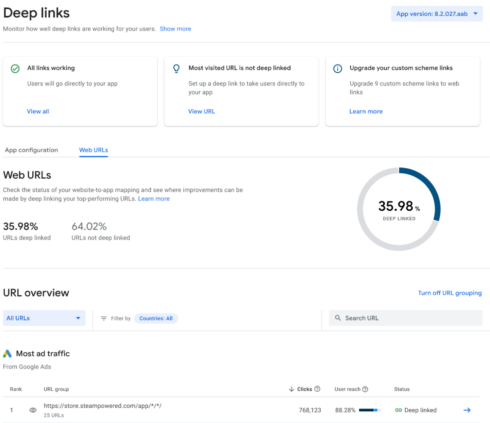
The Android development team is making several changes aimed at supporting Android developers and their growth.
It is adding new capabilities around creating and managing Google Play listings, including the ability to save listings as drafts, schedule listings to publish at a specific time, and test listings with a portion of your audience.
This follows changes from earlier this year, such as the ability to create custom store listings for different audiences and new metrics and insights related to deep links.
The team is also adding several updates to price experiments, which is a feature that allows developers to test different price points and optimize prices for local purchasing power. Starting next month developers will be able to save price experiments as drafts, remove variants from experiments if performance isn’t good, see warning notifications for price configuration issues, and apply the “winning” price to all products.
Developers can also now more efficiently display their available products based on their regional availability. This is achieved by using the getBillingConfigAsync API that provides the user’s country.
Another upcoming feature is expanding real-time developer notifications to include one-time purchases and voided purchases.
The Android development team is also continuing to work on providing flexibility in billing, and will be making alternative billing APIs available in over 35 markets, providing developers with a more streamlined billing experience to provide apps to users in markets that may want to pay using methods other than Google’s payment service. Developers will no longer need to build and maintain choice screens, can manage alternative billing settings, and transactions reported through the API will reflect on the Top Charts and be included in developer reporting, showing information like exchange rates, associated app package ID, and service fee rates.
To improve overall app quality, developers will also get access to more metrics to help them monitor their apps for bad behaviors. New features include hourly vitals data during release rollouts, access to three years of vitals data to analyze long-term trends, per-device metrics, alerts when per-device bad behavior thresholds reach 8%, recommended fixes for errors in Android Studio, and the ability to grant team members limited access to app quality data.
And finally, the Play Integrity API, which helps reduce tampering of apps, has been updated with new features, such as a signal that checks that Play Protect hasn’t been turned off, a new Play Integrity API report, and the ability to manage Play Integrity API integration in the Google Play SDK Console. In addition, low-latency Play Integrity API standard requests are now generally available, and according to Google, can provide integrity verdicts 10 times faster.






